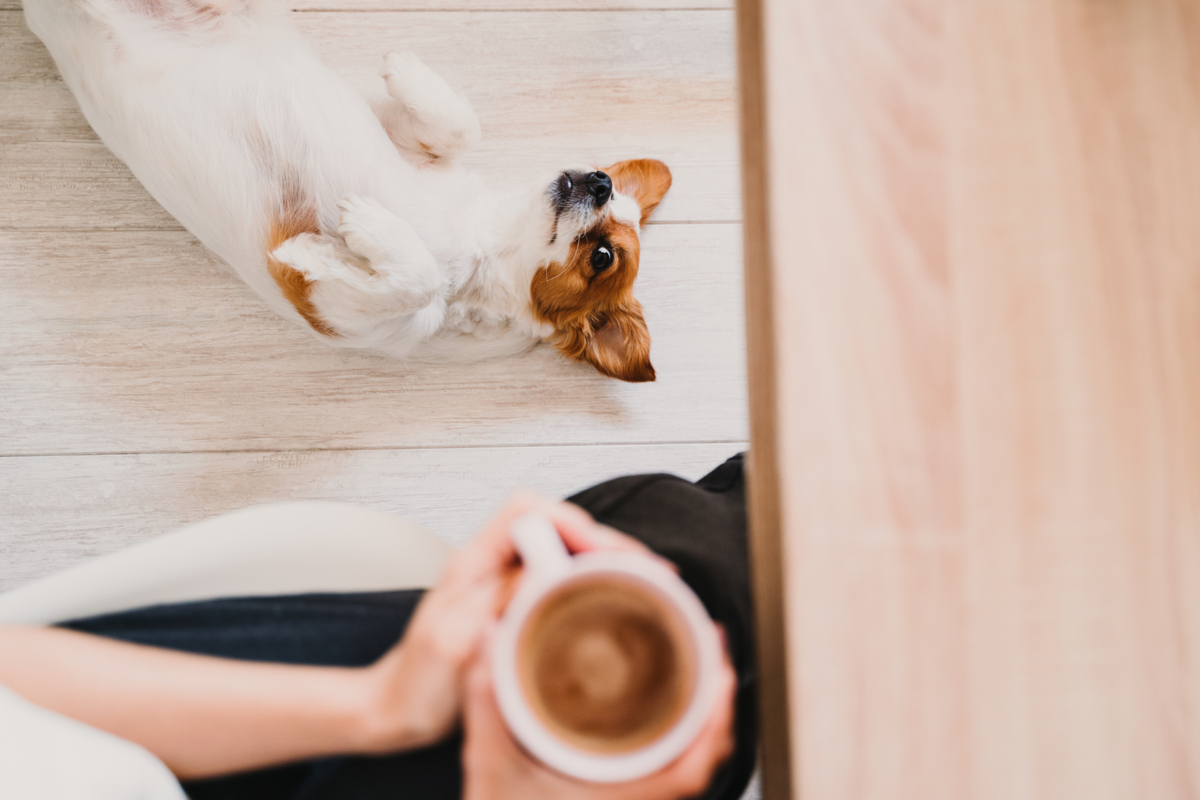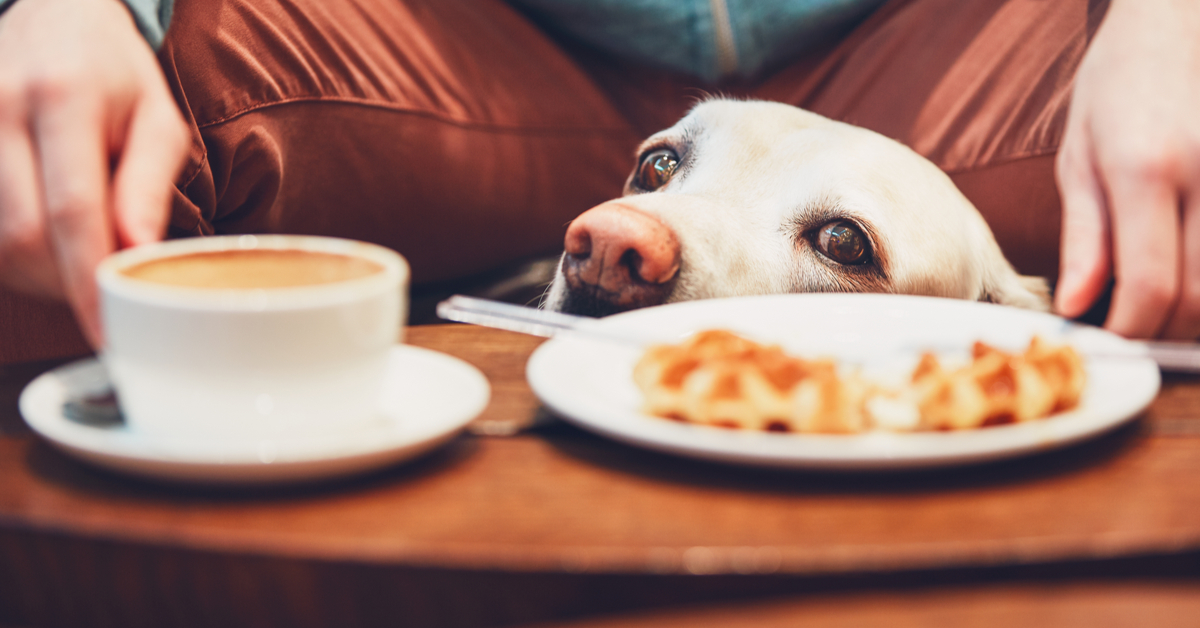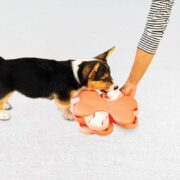How are we expected to make coffee before having coffee? I’ve lost count of the number of times I’ve sleepily spilled coffee grounds all over the kitchen in the morning, scrambling to clean it up before my dog ate coffee grounds off the floor.
So much for that morning brew.
My dog probably would have been OK if he ingested only a little bit of it, but if he had eaten a large amount of coffee grounds, it could have been deadly.
For some of us humans, coffee is life. For pets, it can be the opposite.
Pets are much more sensitive to caffeine than humans are. As a result, ingesting too many coffee grounds, coffee beans, tea bags, and the like can cause caffeine toxicity.
If your dog ever gets into coffee grounds, diet pills, or anything else containing a high amount of caffeine, it’s important to know the warning signs of caffeine poisoning.
Symptoms of Caffeine Toxicity

The Pet Poison Helpline’s website states that symptoms of caffeine poisoning can start within one-two hours of exposure.
Symptoms of caffeine poisoning include:
- mild to severe hyperactivity
- restlessness
- vomiting
- elevated heart rate
- hypertension (elevated blood pressure)
- arrhythmia (abnormal heart rhythms)
- tremors
- hyperthermia (elevated body temperature)
- seizures
- collapse
Small dogs like Chihuahuas are especially at risk of caffeine poisoning because of their lower body weight. The toxins enter a small dog’s system more quickly.
If your dog eats coffee grounds and shows any of these symptoms of toxicity, you need to call your DVM or poison helpline right away.
My Dog Ate Coffee Grounds. What Do I Do?

Now that you know the effects of caffeine on your pet, here’s what comes next. With the guidance of your vet or a professional on the Pet Poison Helpline, you will have to act fast to induce vomiting.
To make your dog vomit safely, you will need 3% hydrogen peroxide and something to inject it with like a syringe or turkey baster.
Better yet, have these things in a pre-made pet first-aid kit. For a full list of what should be in your pet first aid kit, check out our blog post on the subject.
After the fact, the vet might recommend you bring them into the animal hospital for supportive iv fluid therapy. This helps prevent dehydration and to flush out whatever toxins are leftover in your dog’s body.
Keep your pets away from these items that contain caffeine

Pet parents need to be careful about what’s in their kitchen at their dog’s level. Common consumables with high caffeine content include:
- coffee grounds and coffee beans
- tea and tea bags
- energy drinks
- espresso
- theobromine and chocolate
- instant coffee
- coffee ice cream
- soda
Pets ingest things they shouldn’t all the time. The Pet Poison Helpline is a 24/7 animal poison control center that can be reached at 1-800-213-6680. The ASPCA’s Animal Poison Control Center can be reached at 1-888-426-4435.
Save these phone numbers! Put them in your smartphone, write them on a sticky note and post it to your fridge. Whatever you do, you’ll need to treat poisoning quickly with the guidance of a veterinary professional.
Let your everyday cup of coffee or Starbucks run serve as a reminder that while caffeine is might be a necessity for you, it doesn’t do any good for your pup.
Pet Poison Helpline 1-800-213-6680
ASPCA APCC 1-888-213-6680

